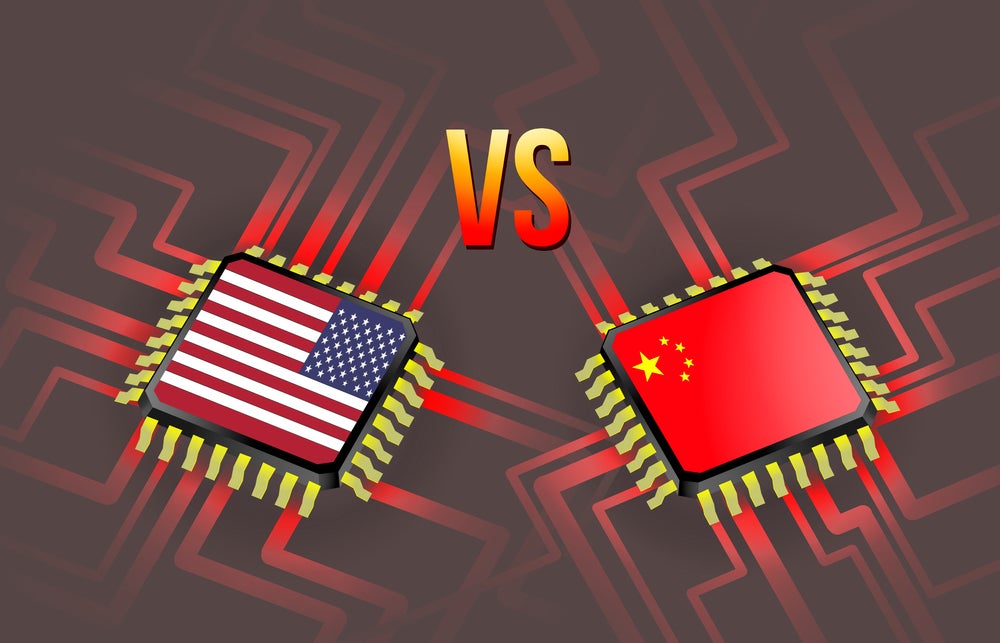
If there’s anyone who can talk about the rise of fintech (financial technology) and where the sector is going, its Microsoft’s director of financial services, Richard Peers.
He’s been working for the legacy tech company for the past 21 years, and it’s given him some advantages. “The industry changes dynamically all the time. And one of the advantages of being around for that amount of time is as the industry changes, you can change your roles,” he told Verdict.
Six years ago he was working with Microsoft’s teams that were working with the banks developing mobile apps.
In doing that, I met the whole wave of the need to modernise banks, the need to improve the customer experience, deal with the frustration employees had with the systems, and what was being done to improve the operational capabilities.
 Ahead of his speech at Lendit Europe 2017 next week, Peers (left) spoke to Verdict about the rise and future of fintech, why banks need to learn from Chinese tech companies and his thoughts on artificial intelligence (AI).
Ahead of his speech at Lendit Europe 2017 next week, Peers (left) spoke to Verdict about the rise and future of fintech, why banks need to learn from Chinese tech companies and his thoughts on artificial intelligence (AI).
1. How fintech came about
“After the banking crisis, you had a lot of computer science graduates who couldn’t get jobs and a lot of bankers who really understood banking were being made redundant or choosing to leave. You had the rise of things like mobile computing, cloud computing, as well as shared and low-cost workspaces.
“This coalescence of the tech talent, the bank talent, and the lower barriers to entry with mobile and cloud, meant that people could start to create this thing we now call fintech based around this specialist understanding.”
2. Why London is a great place for fintech startups
“In London, everything is all concentrated in one place. In the US, a lot of the tech is on the West Coast and a lot of banking is on the East Coast so it removes the ability to converge, meet and mushroom so quickly.
“Also, the Financial Conduct Authority (FCA) has had a fantastic role of being encouraging to the market. Its put things together like the FCA Sandbox, which has allowed fintech startups to go and experiment, so they can see if what they’re doing is going to have legs. The regulator can then encourage and learn fast.”
3. If banks want to keep moving, they can learn a lot from Chinese tech firms and their bots
“Seven years ago it was the world of apps and that was a completely new horizon. Now everyone’s a bit bored; there’s too many of them and people spend all their time in messaging apps like WhatsApp and Tencent’s WeChat.
“The Chinese companies, they see that you spend your life in a messaging app. And they present those financial services you need to you contextually at the time and place and medium that you want it.
“For instance, the startup Paykey, they merge the bank services and bank app into a keyboard which is embedded in whatever social app you use. At the point in the conversation when you say, ‘I will pay you back for coffee’, a tiny button with the bank’s logo on pops up, and you click on that and can immediately do the payment transaction.”
4. Bots will lead to ‘conversation as a service’
“This is the next app horizon people are talking about. We’re moving towards using intelligent agents, like Cortana, Siri and Alexa more. This bot will hover above your social media and apps and learns about you in order to serve that information off to whatever you’re trying to do – whether that’s book a holiday with a flight or pay for something through a bank.
“Conversation as a service is the term we tend to use.”
5. The growth of the UK’s challenger bank scene
“Metro Bank, which was the first retail bank in 100 years, is a good partner of Microsoft. It’s grown when everybody said it wouldn’t. It’s pulling in a huge amount of customers and deposits now – it has a very strong business.
“Then there are others like Clear Bank which is the first new clearing bank in the UK in 250 years. Its right at the heart of the banking infrastructure by clearing payments between the banks. These guys can really start to take a significant chunk of the bank’s core business, which is the traditional banking revenue.
“The challengers are changing the customer experience and perception that banks have to respond to and they’re nibbling away at the revenue streams of banks and loyalty. Will these banks grow so fast that they bring others down? Only time will tell.”
6. Banks are focusing more on the blockchain, then bitcoin
“People in banking are talking about the blockchain and distributed ledger technologies (DLT) in the context of smart contracts, rather than cryptocurrencies.
“You take areas such as trade finance. You have purchase orders, the invoice, when they want to get a loan there has to be checks and credits all the way down the line. It can be quite a slow and long-running process. People want to put in place a smart contract, which is tamper proof and do it so a consortium or group could verify the validity of the contract and the audit trial. This could be cheaper and quicker than the current process.
“I think the blockchain has massive potential.”
7. Cloud technology in banking: it isn’t just for the newcomers
“It took a while – banks were quite cautious and regulators were cautious [about cloud technology]. For instance, Nick Olden, the chief executive of Clear Bank said one of the reasons he uses Microsoft Azure is because we spend billions on cyber security to have the absolute state of the art services. The micro-services are infinitely more secure than what many of the banks bought just five years ago.
“At the other end of the spectrum, UBS, one of the biggest banks in the world are using Microsoft Azure. The big firms often use it for computer risk modelling – this is now done on using cloud services because of the elasticity and the scaling that makes it quicker, cheaper and faster to do.”
8. Why the future of fintech is in AI
“If I was coming into to fintech now, I’d go into AI. We have these huge volumes of data being put through the system that no human being with a spreadsheet can read over it, infer the outcome, and respond to it quickly enough.
“One of the many applications [is when] people can utilise those capabilities of AI and turn that into services which create a whole new sense of value, new revenue pools, and new jobs.
“I know everyone focuses on the negative side of it – but when I started there was no tech industry. Now it’s enormous, and I think we will see new jobs around AI over the next few years that nobody has even thought of.”
Richard Peers is Director of the Financial Services Industry at Microsoft. He will be speaking about the future of fintech at LendIt Europe, the largest European event series specialising in fintech and lending, which takes place on 9-10 October at the O2 in London. See lendit.com for more information







